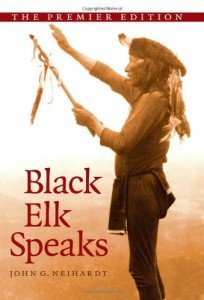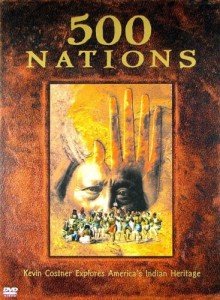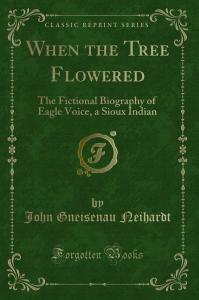Review of In the Spirit of Crazy Horse
A Profound Exploration of Justice, Identity, and History
Peter Matthiessen’s In the Spirit of Crazy Horse, published by Penguin Books in 1992, is a fine work that defies simple categorization. At once a deeply researched historical account, a searing critique of injustice, and a poignant meditation on Indigenous identity, this book resonates profoundly with readers who seek to understand the complex tapestry of Native American history in the United States. With his meticulous detail and lucid prose, Matthiessen embarks on a journey to uncover truths that have been obscured for decades, shedding light on the plight of the Lakota people and the controversial case of Leonard Peltier.
Overview of the Book
In its essence, In the Spirit of Crazy Horse is both a historical and investigative work. The book centers around the 1975 shootout at the Pine Ridge Reservation in South Dakota, which resulted in the deaths of two FBI agents and the subsequent conviction of Leonard Peltier, an American Indian Movement (AIM) activist. Matthiessen meticulously explores the events leading up to this tragic incident, the dubious legal proceedings that followed, and the broader context of Native American resistance and oppression.
The title of the book itself is deeply symbolic, evoking Crazy Horse, the legendary Lakota warrior who epitomized the strength, resilience, and spiritual essence of his people. By invoking his spirit, Matthiessen situates the narrative within the larger continuum of Native American struggle and resistance, making the story of Leonard Peltier not merely a legal case but a symbol of centuries of systemic injustice.
Matthiessen’s Narrative Style
Matthiessen’s narrative style is both compassionate and unflinching, weaving together interviews, court transcripts, historical documents, and personal observations into a compelling tapestry. He adopts the role of a meticulous investigator while maintaining a deep empathy for the people whose stories he recounts.
The prose is imbued with a quiet urgency, reflecting Matthiessen’s commitment to uncovering truth amidst layers of obfuscation. His ability to intertwine past and present gives the book a timeless quality, reminding readers that the injustices faced by Native Americans are far from relics of history—they persist and demand attention.
Historical Context and Its Implications
Matthiessen’s exploration of the Pine Ridge shootout is deeply rooted in the historical context of Native American resistance. He delves into the history of the American Indian Movement, tracing its origins in the 1960s as a response to decades of oppression and marginalization. AIM sought to reclaim Native American identity, sovereignty, and dignity, and it became a powerful force for change. However, AIM’s activism was met with relentless opposition from the U.S. government, culminating in surveillance, harassment, and violent confrontations.
The book highlights the systemic nature of the injustice faced by Native Americans, linking the persecution of AIM activists to broader patterns of exploitation and discrimination. Matthiessen’s portrayal of the U.S. government’s actions is chilling, revealing the extent to which agencies like the FBI deployed questionable tactics to suppress resistance and maintain control over Native lands.
The Case of Leonard Peltier
Leonard Peltier’s story lies at the heart of In the Spirit of Crazy Horse. Matthiessen painstakingly reconstructs the events surrounding the Pine Ridge shootout, painting a picture of chaos and conflict that defies easy resolution. He examines the evidence presented at Peltier’s trial, exposing glaring inconsistencies and raising troubling questions about the fairness of the proceedings.
Peltier’s conviction is portrayed as emblematic of a broader miscarriage of justice. Matthiessen does not shy away from criticizing the legal system, arguing that Peltier was made a scapegoat for deeper political and social tensions. The book raises profound questions about the intersection of law, power, and race, forcing readers to confront uncomfortable truths about the American justice system.
The Spirit of Resistance
While In the Spirit of Crazy Horse is undeniably a critique of injustice, it is also a testament to the resilience and spirit of the Lakota people. Through his vivid depictions of Pine Ridge and its inhabitants, Matthiessen captures the enduring strength and dignity of those who continue to fight for their rights and heritage. The book’s title serves as a powerful reminder of the spiritual and cultural legacy of Crazy Horse, whose vision of freedom and self-determination continues to inspire generations.
Controversy and Impact
It is impossible to discuss In the Spirit of Crazy Horse without acknowledging the controversy it sparked. Upon its initial publication, the book faced legal challenges from individuals and organizations who claimed it contained defamatory statements. These lawsuits delayed the book’s wider release, but they also underscored the contentious nature of the issues it addresses.
Despite these challenges, Matthiessen’s work has had a profound impact. It has become a useful text for those interested in Native American history, activism, and justice. The book’s meticulous research and passionate advocacy have earned it a place in the canon of American investigative literature.
Final Thoughts
In the Spirit of Crazy Horse is not an easy book to read. It demands attention, reflection, and a willingness to confront uncomfortable truths. Yet, it is precisely this unflinching approach that makes it so powerful. Matthiessen’s ability to weave history, journalism, and personal narrative into a cohesive whole is unparalleled, and his commitment to justice is evident on every page.
This book is a call to action—a reminder that the struggle for justice is ongoing and that the voices of the oppressed must never be silenced. For anyone seeking to understand the complexities of Native American history and the enduring impact of systemic injustice, In the Spirit of Crazy Horse is a helpful read. Matthiessen’s work stands as a testament to the power of truth and the spirit of resistance, embodying the legacy of Crazy Horse himself.






